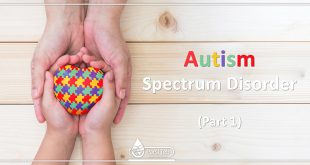
Kidney cancer isn’t as common as breast or lung cancer. For most people, the chance of getting kidney cancer in their lifetime is less than two percent, according to the American Cancer Society.
Your risk increases if you smoke, are obese, or have been exposed to chemicals such as asbestos and benzene. Sometimes kidney cancer can run in families. If you’re at high risk, talk to your doctor and watch out for symptoms.
Hard to Find

When someone has skin cancer, they might see an unusual growth on their skin. For example, breast cancer is often found when a woman discovers a lump in her breast. Because the kidneys are so deep inside the body, it’s harder to find kidney cancer just by looking or feeling for growths.
Although mammograms and colonoscopies can screen for breast and colorectal cancers, there is no screening test for kidney cancer in people who aren’t at high risk for the disease.
Warning Signs of Kidney Cancer

Kidney cancer often doesn’t cause symptoms until the tumor has already grown. The most common symptom is blood in the urine, called hematuria. If the amount of blood is too small to be seen with the naked eye, it can be found on a urine test.
It’s important to remember: noticing blood in your urine doesn’t mean that you have kidney cancer. Other conditions—from infections to kidney stones—can also produce this symptom
Other Symptoms

Blood in the urine is the main symptom of kidney cancer, but there are other signs too. Other symptoms include:
- pain in the side or lower back
- symptoms of an infection, such as fever, fatigue, and an overall sick feeling
- losing weight without trying
- swollen ankles
Many of these symptoms can be caused by other illnesses, like the flu or a back injury. But if these symptoms don’t go away, talk to your doctor.
What Your Doctor Might Find

During an exam, your doctor will look for other symptoms of kidney cancer that you couldn’t find on your own. They might press on your abdomen to check for a lump. Or tests might show high blood pressure or a low red blood cell count (anemia).
Your doctor will perform tests to find out if you have kidney cancer or another condition that can cause the same symptoms.
What to Do Next

If you do have kidney cancer, your doctor will find out how advanced it is and whether it has spread to other parts of your body. This is called staging. It helps your doctor determine the right course of treatment for you.
Many different treatments are available for kidney cancer. Radiation, chemotherapy, and surgery can help stop the cancer and improve your long-term outlook.
 Parsi Teb Physical and Mental Health Journal
Parsi Teb Physical and Mental Health Journal 



